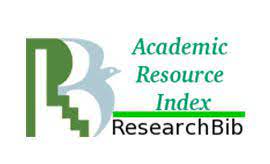EDUCATIONAL TRADITIONS OF RESEARCH EDUCATION AND CREATION OF A LEARNING CENTER FOR JUNIOR SCHOOLCHILDREN IN THE SYSTEM OF THE JUNIOR ACADEMY OF SCIENCES OF UKRAINE
DOI:
https://doi.org/10.51707/2618-0529-2022-25-15Keywords:
research education, integration, primary school students, Children’s Academy “Futurum”, teacher-researcher.Abstract
The article summarizes the historical development of the formation of the education system on a research basis, from antiquity to the present. The problem of search and introduction of innovative pedagogical technologies for the development of research activities of primary school students, the formation of a holistic picture of the world in the context of changes in the modern education system is outlined. The emphasis is placed on D. Dewey’s research learning technologies, the main provisions of which are considered fundamental for innovative research strategies such as learning strategy through research at the request of students, integrated learning and more. The experience of the Children’s Academy “Futurum” at the National Centre “Junior Academy of Sciences of Ukraine” is presented – an educational space for primary school students, which was created to promote scientific education, create conditions for creative creativity, the competence development through the research. One of the features of the educational process of the Children’s Academy “Futurum” is mentioned, namely: the synthesis and adaptation of international educational practices in research education. It is noted that an important component in the organization of such educational centres is the involvement in pedagogical practice with children of scientists, educators and researchers and their training in methods of working with students. Teaching methods are based on the integration of types of education, their principles, and methods. Multilevel integration promotes children’s development of critical, analytical, creative thinking. It is outlined that the research approach in teaching involves the organization of students’ activities related to the solution of the research problem, the formation of skills to creatively and independently master and synthesize different ways of working. The conclusions are formulated that for the introduction of scientific education in work with children of the primary school age it is necessary: the comprehensive study of research models, considering the age psychological characteristics of the primary school students in teaching scientific knowledge and training teachers for this activity.
References
Derzhavnyi standart pochatkovoi osvity [State Standard of Primary Education]. (n.d.). zakon.rada.gov.ua. Retrieved from https://zakon.rada.gov.ua/ laws/show/87-2018-%D0%BF#Text [in Ukrainian].
Kontseptsiia rozvytku pryrodnycho-matematychnoi osvity (STEM-osvity) [Сoncept of the development of natural and mathematical education (STEM education)]. (n.d.). zakon.rada.gov.ua. Retrieved from https://zakon.rada.gov.ua/laws/show/960-2020-%D1%80#Text [in Ukrainian].
Antonova, O. Ye. (2013). Do istorii stanovlennia doslidnytskoho navchannia [To the history of formation of research education]. Doslidnytskyi komponent u diialnosti zahalnoosvitnikh navchalnykh zakladiv ta pozashkilnykh zakladiv osvity: retrospektyva i perspektyva – Research component in the activities of secondary schools and out-of-school educational institutions: retrospective and perspective : Proceedings of the All-Ukrainian scientific and practical conference (pp. 6–13). Kyiv : Instytut obdarovanoi dytyny [in Ukrainian].
Levkivskyi, M. V., & Dubaseniuk, O. A. (Eds.). (1999). Istoriia pedahohiky [History of pedagogy]. Zhytomyr : Zhytomyrskyi derzhavnyi pedahohichnyi universytet [in Ukrainian].
Dewey, J. (2003). Dosvid i osvita [Experience and education]. (M. Vasylechko, Trans). Lviv : Kalvariia [in Ukrainian].
Dobrovolska, L. N., & Androsova, V. O. Orhanizatsiia navchannia cherez doslidzhennia na osnovi zapytu uchniv pochatkovoi shkoly [Organization of learning through research based on the request of primary school students]. Retrieved from http://library.ippro.com.ua/attachments/article/534/%D0%9D%D0%90%D0%92%D0%A7%20%D0%A7%D0%95%D0%A0%D0%95%D0%97%20%D0%94%D0%9E%D0%A1%D0%9B%D0%86%D0%94%D0%96%D0%95%D0%9D%D0%9D%D0%AF-1.pdf [in Ukrainian].
Sharpak, Zh. (2014). Spohady vyhnantsia, fizyka, hromadianyna svitu [Memories of an exile, physicist, citizen of the world]. (I. Riabchii, Trans). Lviv : Vydavnytstvo Anetty Antonenko [in Ukrainian].
Kulynych, L. Sekrety redzhio-pedahohiky: shcho tse take i v chomu yii populiarnist [Secrets of Reggio Edukation: what it is and what is its popularity]. Retrieved from https://vseosvita.ua/news/sekreti-redzio-pedagogiki-so-ce-take-i-v-comu-ii-popularnist-3966.html [in Ukrainian].
Pro Klub Molodoho Vynakhidnyka [About the Young Inventors Club]. Retrieved from http://www.kmo.com.ua/about#about-1 [in Ukrainian].
Just, M. (2017). Nauka twórczego rozwiązywania problemów i kreatywnego myślenia we wczesnej edukacji. Pedagogika Przedszkolna i Wczesnoszkolna, 1 (9). (Vol. 5), (pp. 29–43). Retrieved from https://czasopismoippis.up.krakow.pl/wp-content/uploads/2015/01/PPIW-9-just-int.pdf [in Polish].
Polikhun, N. I. (2012). Yak staty doslidnykom [How to become a researcher]. Kyiv : Praimdruk [in Ukrainian].
Hrynevych, L. M., Morze, N. V., & Boiko, M. A. (2020). Naukova osvita yak osnova formuvannia innovatsiinoi kompetentnosti v umovakh tsyfrovoi transformatsii suspilstva [Scientific education as the basis for innovative competence formation in the conditions of digital transformation of the society]. Informatsiini tekhnolohii i zasoby navchannia – Information Technologies and Learning Tools, 77 (3), 1–26. DOI: 10.33407/itlt.v77i3.3980 [in Ukrainian].
Shevchenko, I. (2020) Dytiacha akademiia “Futurum” i Muzei nauky MANU: dialoh v osvitnomu prostori [Children’s Academy “Futurum” and the Museum of Science of JASU: dialogue in the educational space]. Proceedings of II Vseukrainska naukovo-praktychna konferentsiia “Muzeina pedahohika v naukovii osviti” – The Second All-Ukrainian Scientific and Practical Conference “Museum pedagogy in scientific education”. S. O. Dovhyi (Ed.). (pp. 295–298). Kyiv : National Center “Junior Academy of Sciences of Ukraine”. DOI: https://doi.org/10.32405/978-966-97763-19-11-2020-251[in Ukrainian].
Downloads
Published
How to Cite
Issue
Section
License
Copyright (c) 2022 Scientific notes of Junior Academy of Sciences of Ukraine

This work is licensed under a Creative Commons Attribution 4.0 International License.













